Are you considering ending a consultancy agreement and unsure how to approach it? Navigating the termination process can be challenging, but having a clear and respectful letter can make all the difference. In this article, we'll outline a helpful template that ensures your message is professional and transparent while retaining goodwill. So, let's dive in and explore the key components you need to include in your termination letter!

Clear identification of parties
The termination of a consultancy agreement can have significant legal implications. Clear identification of parties involved is crucial for ensuring that all terms are understood. For this purpose, it is pertinent to include specific details such as the consultant's full name, registered business name (if applicable), and contact information. Similarly, the client's full name or organization name, along with relevant details like business registration number and contact details, should be clearly outlined. Dates of involvement, specific terms of the consultancy, and the effective date of termination must be precisely mentioned to avoid any ambiguity. This clarity helps in maintaining professional integrity and compliance with contractual obligations.
Effective termination date
The termination of a consultancy agreement can be finalized with a clearly defined effective termination date, ensuring both parties acknowledge the end of the contract. For instance, if a consultancy agreement is terminated on October 31, 2023, both the consultant and the client must finalize all outstanding deliverables and settle any payments by this date. The notice should outline the responsibilities during the notice period, specify any ongoing obligations like confidentiality or return of proprietary information, and confirm the return of materials, such as project files or equipment, to ensure a smooth transition.
Reason for termination
The consultancy agreement termination process often stems from various factors, including but not limited to insufficient project deliverables, breach of contractual obligations, or changes in business direction. For instance, if a consultancy project in corporate strategy fails to meet established key performance indicators (KPIs) over a specified period, it could warrant termination. Additionally, if either party engages in unethical practices or violates confidentiality clauses, it may necessitate a cessation of the agreement. Changes in market conditions, such as a downturn in the economy or shifts in the competitive landscape, can also influence decision-making regarding consultancy relationships, leading to an evaluation of ongoing necessity or alignment with business goals. Careful documentation of these reasons is crucial to ensure clarity and mitigate potential legal implications.
Obligations upon termination
Upon termination of the consultancy agreement, all obligations outlined in the contract must be fulfilled to ensure a smooth transition. The consultant must return all proprietary materials, documents, and sensitive information related to the client's operations within seven days of termination. Financial obligations must be settled, including any outstanding invoices for services rendered until the termination date, which must be paid within 30 days. Confidentiality must be upheld; any non-disclosure agreements remain in effect indefinitely to protect the client's business interests. The consultant should also provide a final report summarizing project outcomes and recommendations for future actions, due within two weeks after termination, to ensure knowledge transfer and client support. Lastly, compliance with any jurisdiction-specific laws related to contract termination must be ensured, recognizing the legal implications of the termination process.
Contact information for further communication
The termination of the consultancy agreement necessitates clear communication methods for any future inquiries or follow-up discussions. Include valid contact information, such as a dedicated email address (e.g., consultancy@example.com), which allows for efficient communication. Additionally, provide a direct phone number (e.g., +1-555-123-4567) for immediate concerns or clarifications. Ensure the physical address of the consultancy (e.g., 123 Business Ave, Suite 400, City, State, ZIP) is included for formal correspondence, if necessary. This information fosters a streamlined process for both parties in the aftermath of the agreement's conclusion.

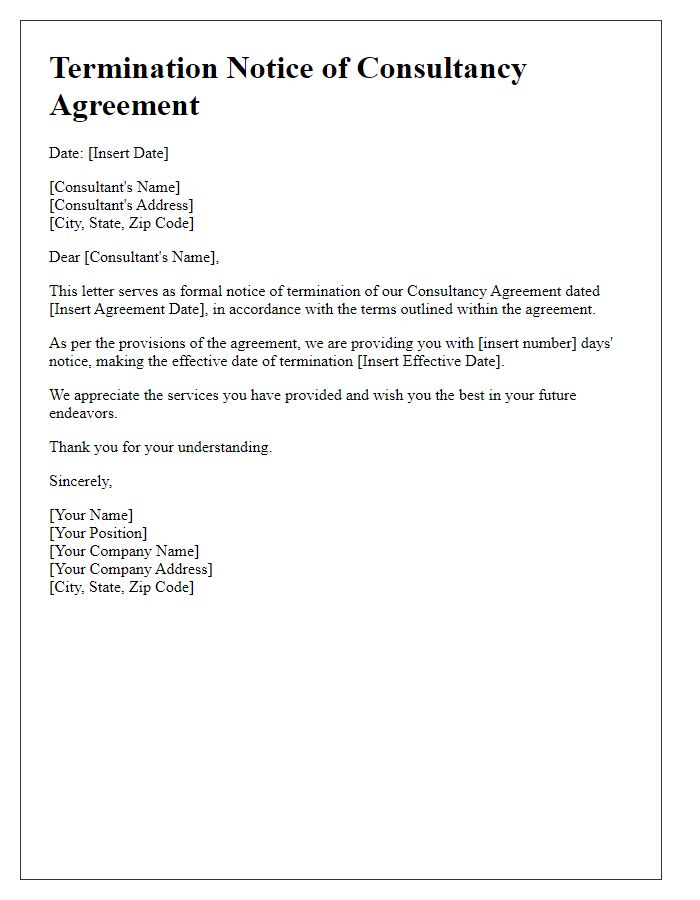
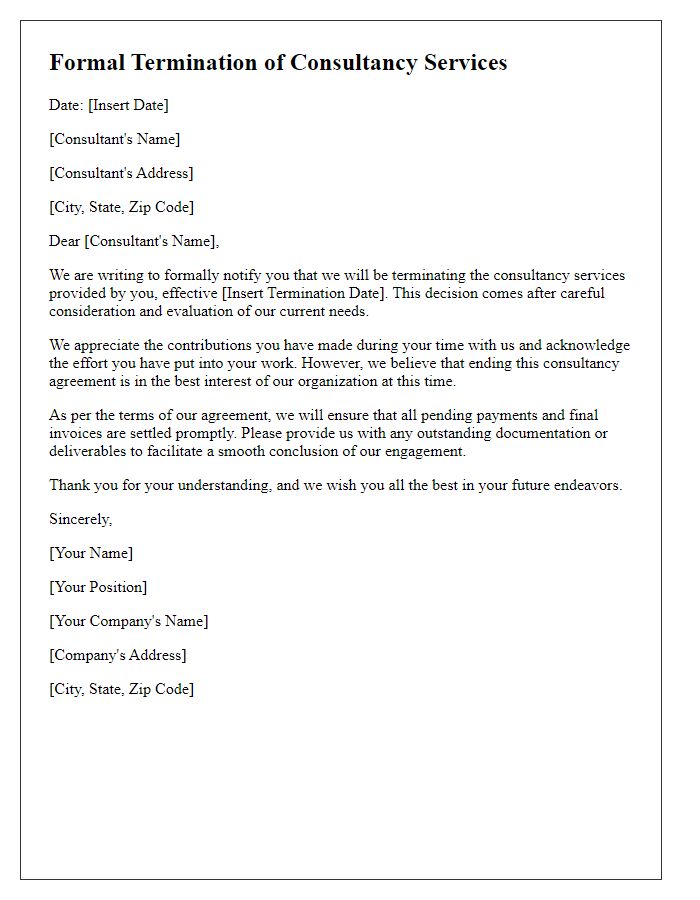
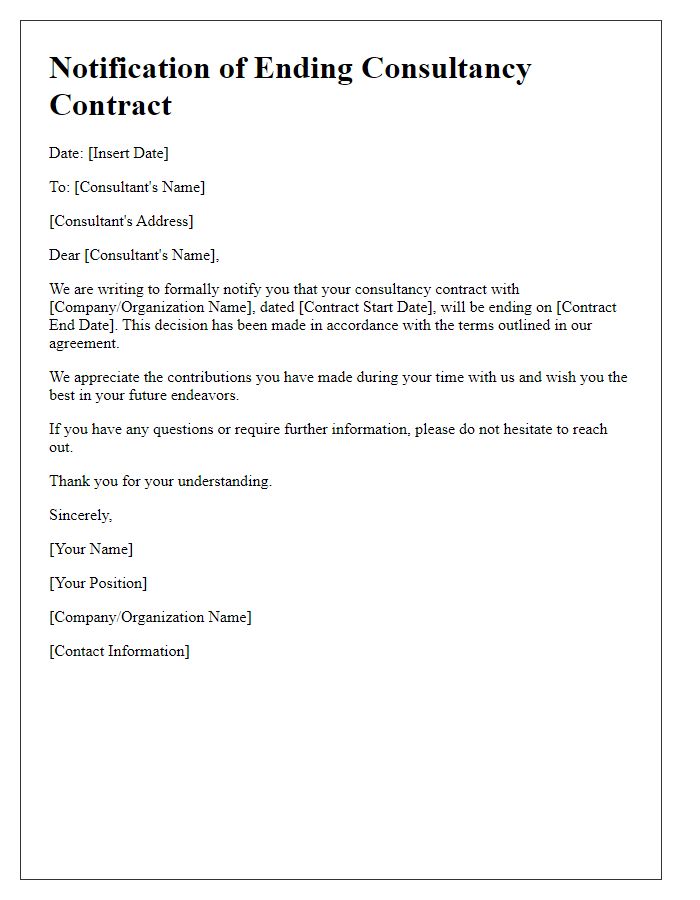
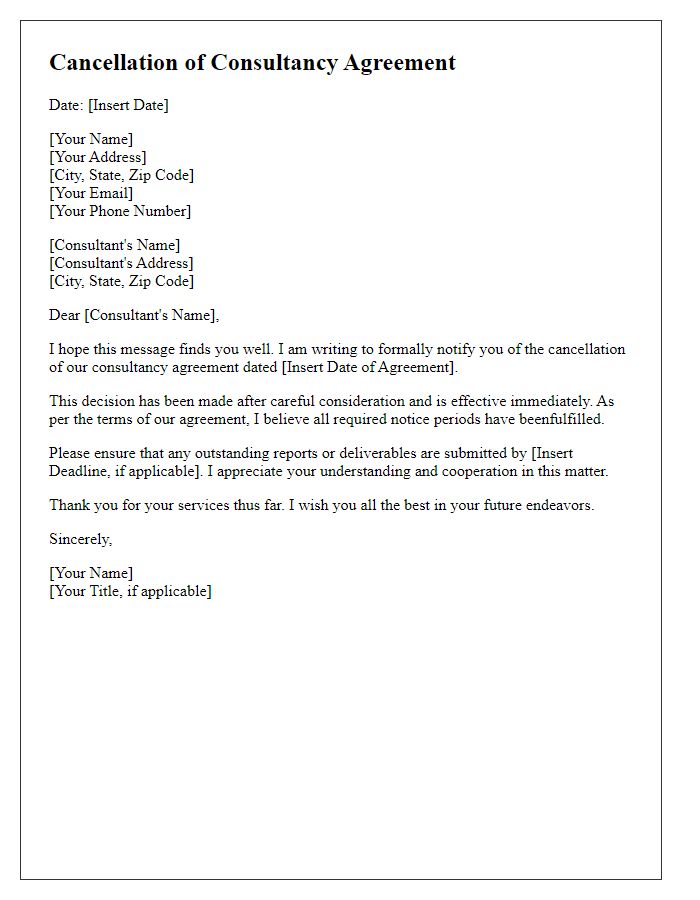
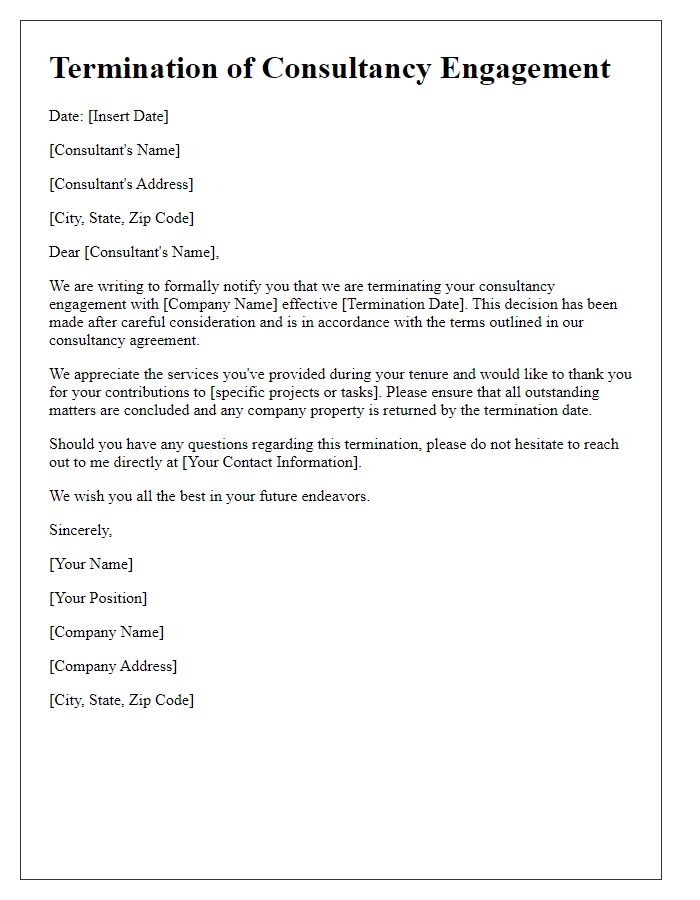
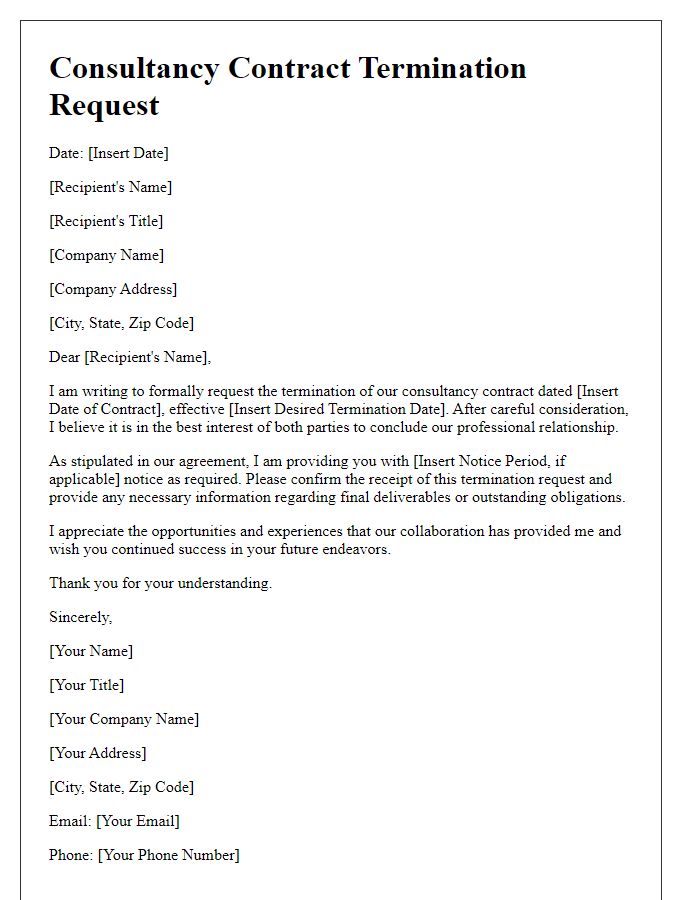
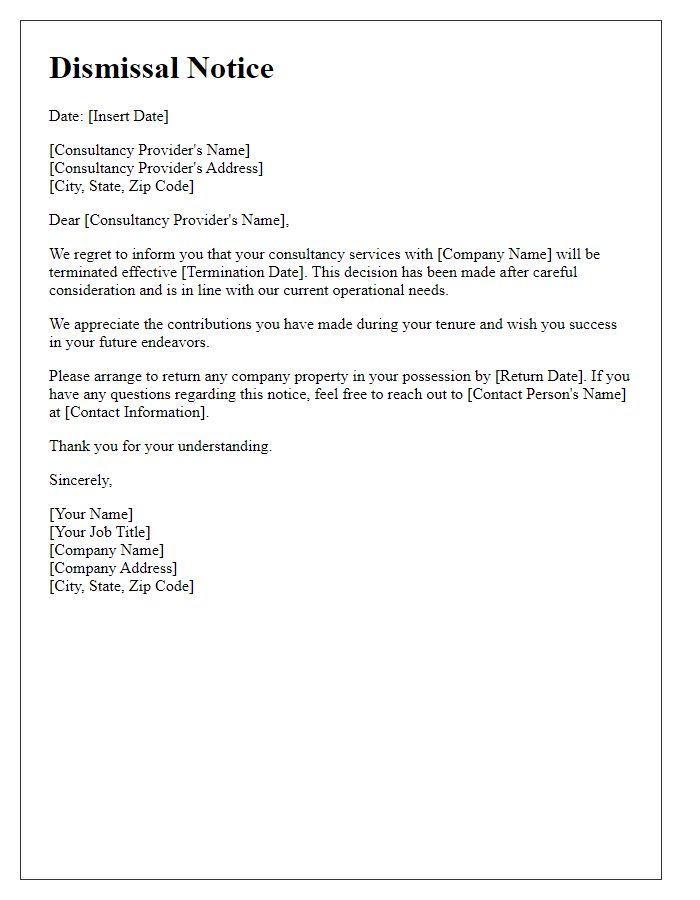
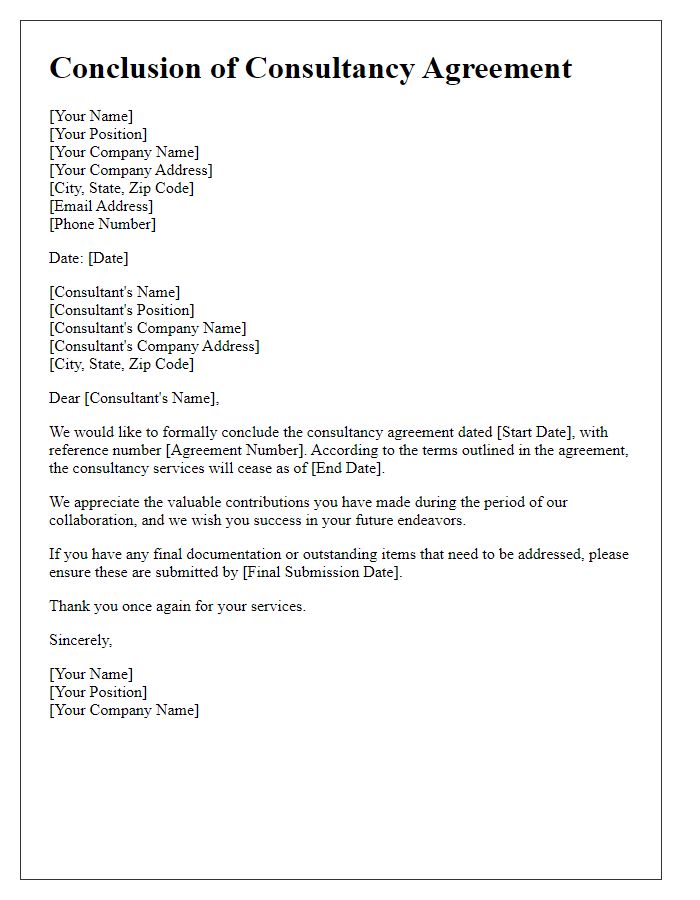
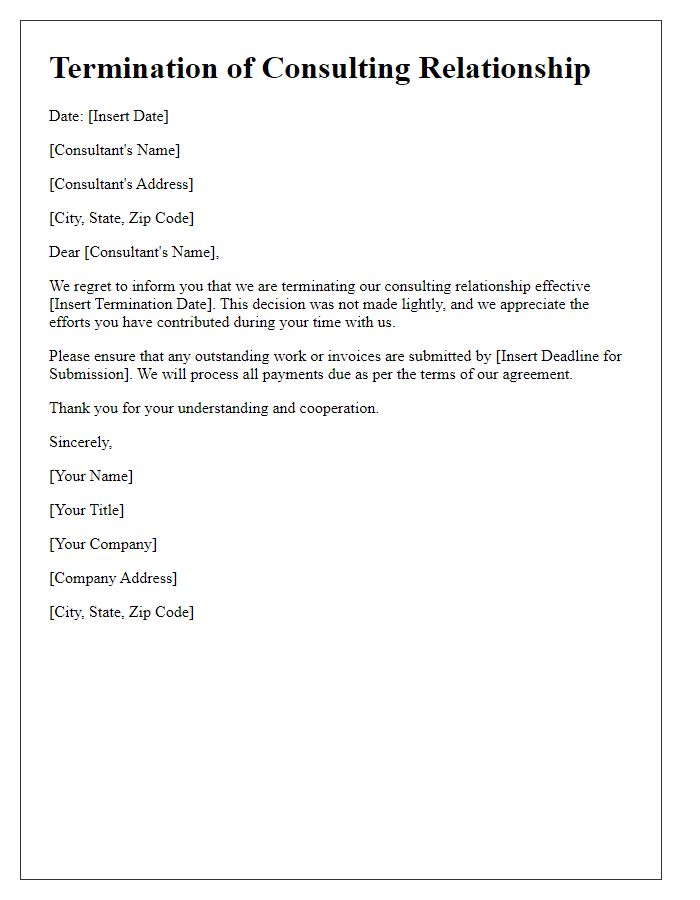
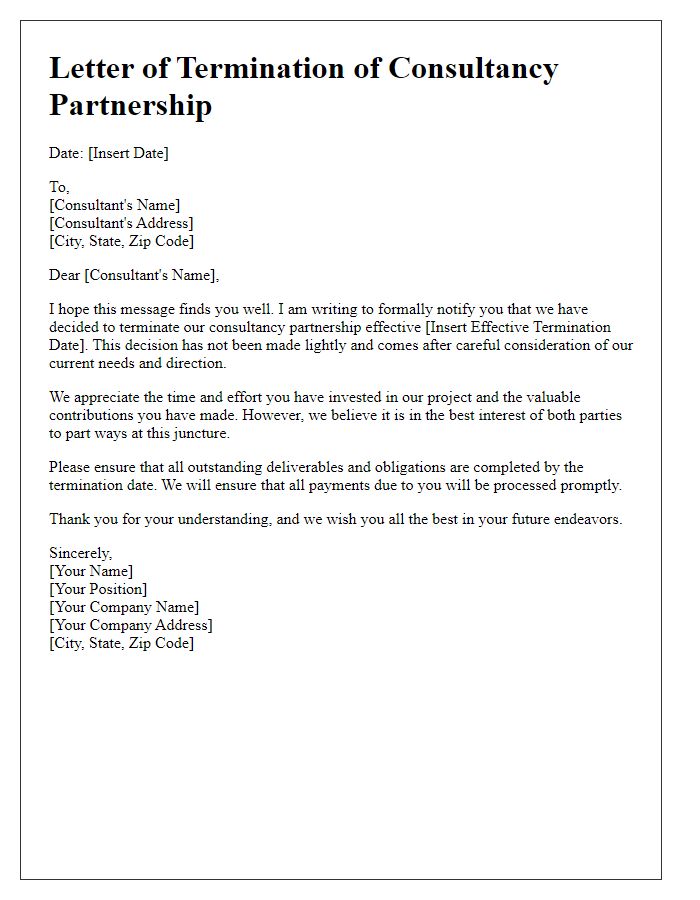


Comments